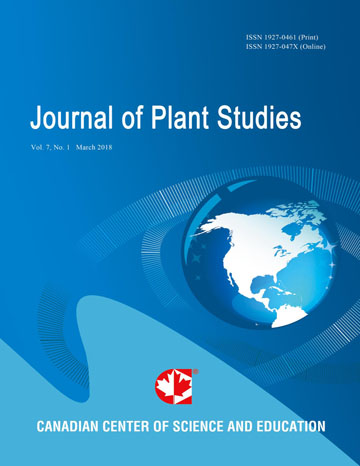Effects of Eucalyptus grandis Leaf Litter Decomposition on the Growth and Resistance Physiology Traits of Eremochloa ophiuroides
- Yi Li
- Ting Hu
- Fan Zeng
- Hong Chen
- Xiu Wu
Abstract
In order to investigate the effect of decomposing leaf litter of Eucalyptus grandis (E. grandis) on the growth trait and resistance physiology of Eremochloa ophiuroides (E. ophiuroides), three treatments with different amounts of leaf litter were designed in this study, including A1 (30 g/pot), A2 (60 g/pot), A3 (90 g/pot), and a group without treatment (0 g/pot, CK), The blank experiment group with distilled fallen leaves were set as mentioned above. The results showed that growth traits (root length, plant height, fresh weight and dry weight) were significantly inhibited along with the increasing amounts of E. grandis leaf litter. The activity of CAT and SOD increased at low content of leaf litter and less processing time, but significantly dropped over time. The activity of POD was inhibited at all tested time, and all treatments were significantly lower than that in CK. The MDA content of CK was similar to that in A1 and A2, but significantly lower than that in A3 at the 30th day after sowing, and three treatments were significantly higher than that in CK after sowing for 60 days and 90 days. The soluble sugar content went up with the increase of leaf litter content at all time points, while the change of soluble protein contents was opposite. This study demonstrated that the decomposing leaf litter of E. grandis had obviously allelopathic effect on the growth and resistance physiology characteristics of E. ophiuroides, which should be controlled rationally in the E. grandis plantation.
 PDF
PDF
